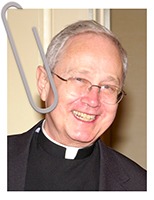Pope Francis spoke the truth to power at the UN on September 25, 2020
- This [pandemic] crisis is changing our way of life, calling into question our economic, health and social systems, and exposing our human fragility.
- The pandemic, indeed, calls us “to seize this time of trial as a time of choosing, a time to choose what matters and what passes away, a time to separate what is necessary from what is not”.[2]
- It can represent a concrete opportunity for conversion, for transformation, for rethinking our way of life and our economic and social systems, which are widening the gap between rich and poor based on an unjust distribution of resources.
- One path leads to the consolidation of multilateralism as the expression of a renewed sense of global co-responsibility, a solidarity grounded in justice and the attainment of peace and unity within the human family, which is God’s plan for our world.
- The other path emphasizes self-sufficiency, nationalism, protectionism, individualism and isolation; it excludes the poor, the vulnerable and those dwelling on the peripheries of life.
- That path would certainly be detrimental to the whole community, causing self-inflicted wounds on everyone. It must not prevail…. the pandemic can be the occasion for a “defensive retreat” into greater individualism and elitism.
Jesus and St. Vincent
We certainly know how often Jesus spoke truth to power whether Jewish religious power of the Scribes and Pharisees. We know the price he paid for this.
St. Vincent spoke truth to the powerful
While Vincent is best known for his practical works of charity, he also served as an advocate for the poor before the highest authorities, at times at considerable risk to himself. On two occasions he intervened personally to try to bring about peace when war was wrecking the lives of the poor. He went right to the top….
And he paid a price for it. His attempts at peacemaking earned him the enmity of the powerful Cardinal Mazarin, who, in his secret diary, records him as an enemy.
Why and how to speak truth to power
I offer these thoughts from a reflection I found on “Four steps for speaking the truth to power”.
Why
- The first reason to speak truth to power is that good leaders want feedback.
- The next reason to challenge the status quo by speaking your truth is that you just can’t live with the way things are
How
Before you speak your truth to power,
- try to understand the reasons for the status quo or for someone else’s opinion or perspective. This new understanding might change your own truth.
- understand the type of power you are challenging and imagine the potential negative consequences. If someone retaliates, how bad will it be and is it worth it to you?
When you speak your truth to power, the article continues
- focus on what is actually happening and what you believe can change. … explain the benefits of the future you want to create and how you want to create it.
- know that you are likely challenging something that this person is responsible for, or maybe you are threatening someone’s view of the world.
Speaking your truth
- Is there anything that bothers you in what was written above?
- Can you identify why?
- Have you thought of voting as speaking the truth to power?


Change that is effective in the light of the Gospel calls for personal conversion as a necessary piece of this change. Pope Francis gave us four principles about society and change in Evangelii Gaudium 217 – 237. These principles involve process (time is greater than space), discernment (God is the source of Unity), change of mind (reality greater than ideas) and expanded vision (whole is greater than the part). The problems are real, but some use the problems to leverage their own power. We are called to be attentive, intelligent, reasonable and responsible.
When we Talk about speaking truth to power, our minds go immediately to government officials. But there are many sources of “power” we need to speak truth to. How about Big Ten football, spending a fortune on COVID testing, money needed to test school children, risking players’ health, in effect selling their soul for big TV money. Or Facebook etc., doing some good by connecting people then erasing it by allowing all manner of racist dangerous rhetoric and crazy conspiracy theories. Lots of “power” needs to hear from us
150% in agreement with this reflection.
Definitely, yes, I’ll vote as I always voted since I was able to do so at age 21 in Rome, Italy.
And, being a dual citizen, I vote both here and in my country of origin through my consulate.
“Render unto Caesar that which is Caesar’s”, is Gospel, too. I owe it to my brothers and sisters to vote as long as I am alive.